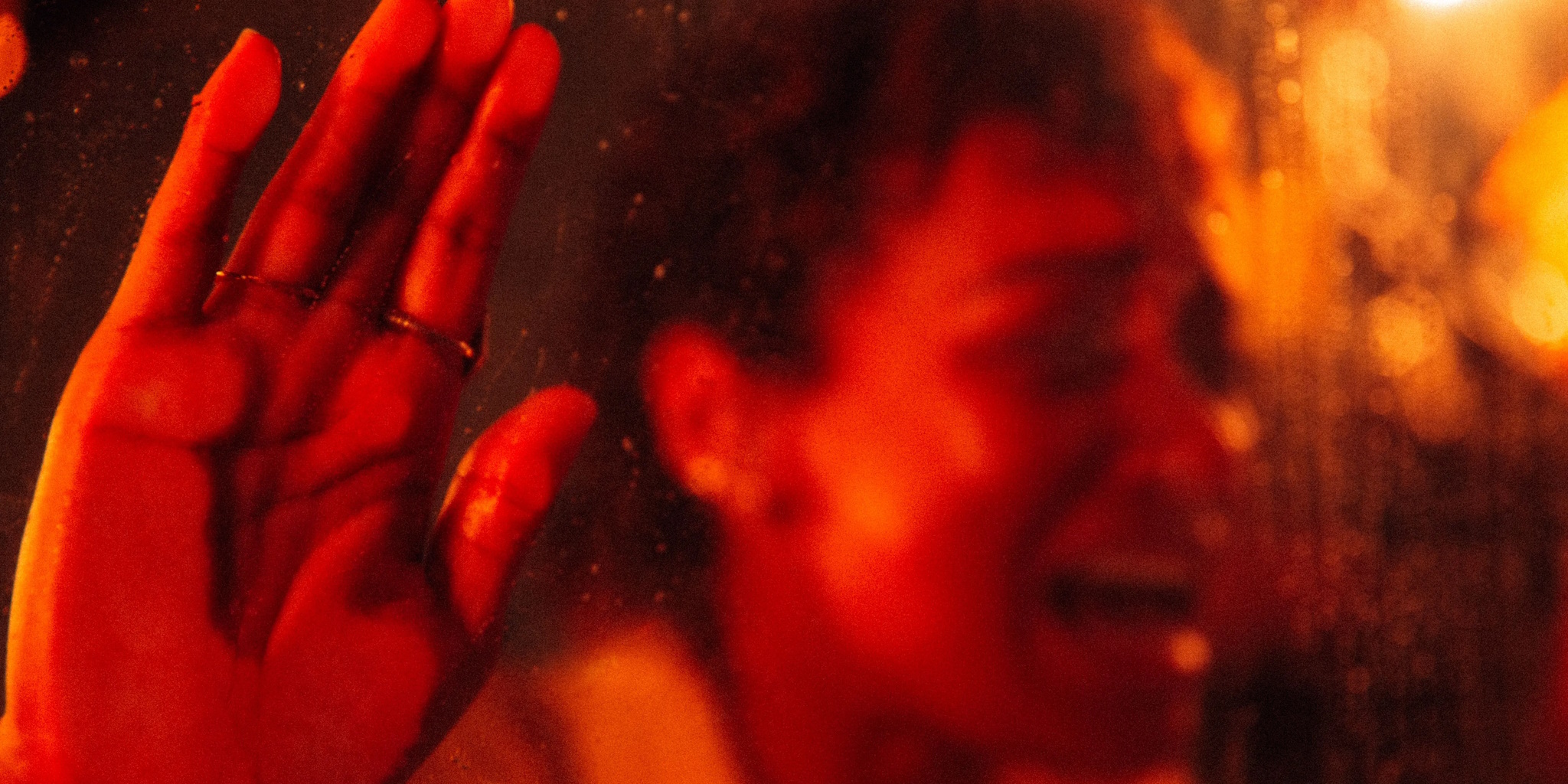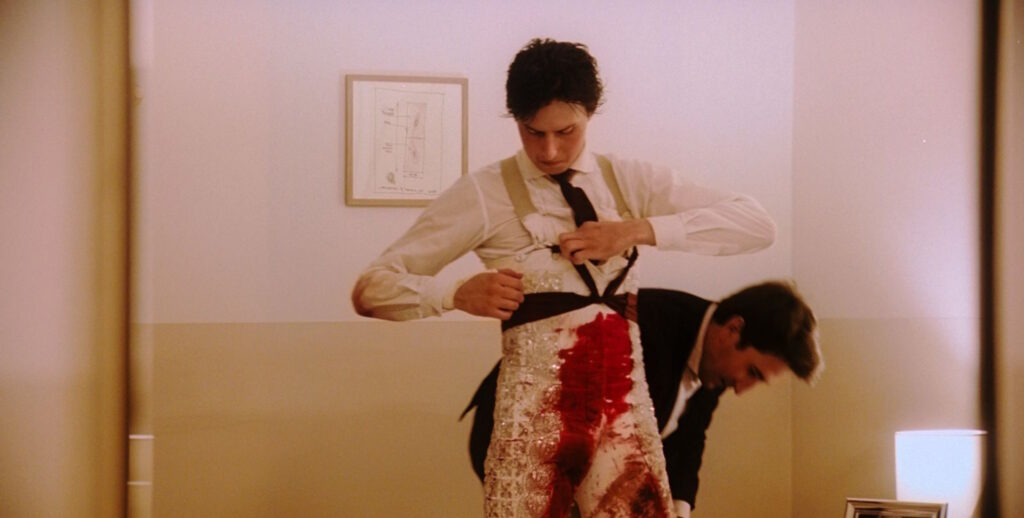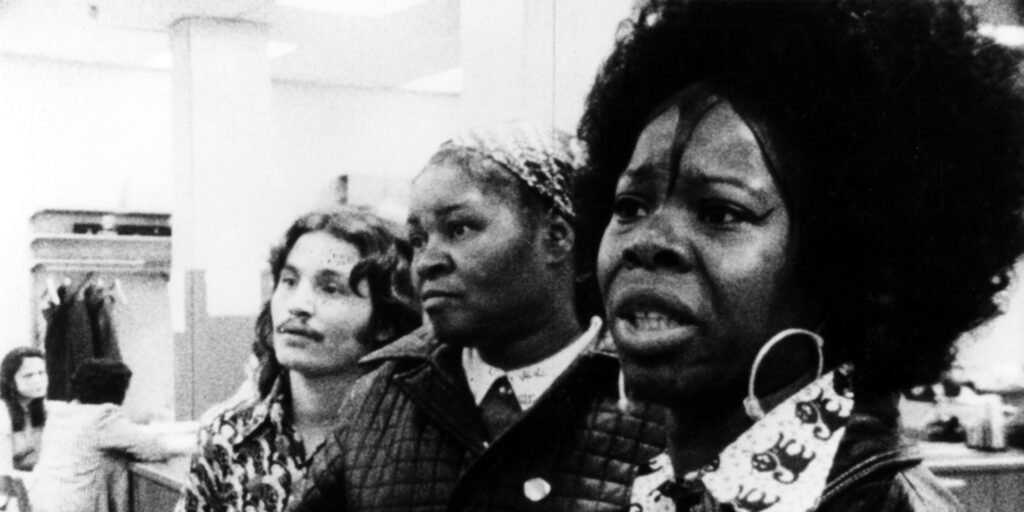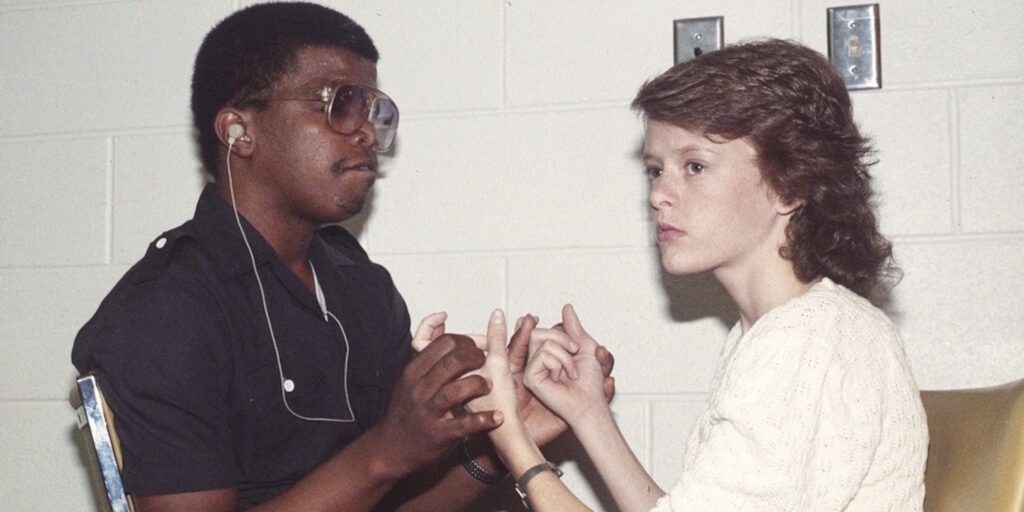Note: This review was written during the 2023 WGA and SAG-AFTRA strikes. Without the labor of the writers and actors currently on strike, the film being covered here wouldn’t exist.
Talk to Me is about stupid kids making stupid choices. This isn’t a criticism. The feature directorial debut of Australian horror YouTubers (and twin brothers) Danny and Michael Philippou, the film plays like a belated reaction to the post-Scream American studio horror wave of the late 1990s and early 2000s. Influenced by Wes Craven’s 1996 neo-slasher and the long shadow of Buffy the Vampire Slayer (1997-2003), films of that era often featured self-aware, hyper-literate teenagers who talked suspiciously like thirtysomething screenwriters. Although it never really alludes to movies like I Know What You Did Last Summer (1997), The Faculty (1998), or Urban Legend (1998) the Philippous’ film provides a striking counterpoint: Here is a horror feature in which the adolescent characters are permitted to be impulsive and self-centered, prone to doing dumb things for dumb reasons. It might lack the eerie, purgatorial atmosphere of It Follows (2014), but Talk to Me is similarly absorbed with the way that teenagers’ questionable decision-making is often driven by banal factors such as petty jealousy and sheer boredom.
Set in the dreary suburban limbo of Adelaide, South Australia, the film centers on Mia (Sophie Wilde), a shy, anxious high-schooler who has been muddling along in the two years since her mother’s suicide. This tragedy has palpably strained her relationship with her father, Max (Marcus Johnson), and Mia has gradually been absorbed into the family of her best friend, Jade (Alexandra Jensen). The fold-out couch in their living room is practically Mia’s second bedroom, and no-nonsense single mother Sue (Miranda Otto) relies on the girl to keep an eye on Jade’s little brother, Riley (Joe Bird). He and Mia form an unlikely but close-knit pair, solidified through enthusiastic sing-alongs to pop singles. The film quietly suggests that Riley may be queer and that their friendship serves as a safe, non-familial space where the kid can figure himself out.
One night, Mia pleads for Jade to let her tag along to the latest unchaperoned house party where swaggering loudmouths Hayley (Zoe Terakes) and Joss (Chris Alosio) will be holding court. The film hints that a locally notorious viral-video stunt is performed at these parties – we see glimpses of some kind of creepypasta weirdness on the girls’ phones – but Mia is really just seeking anything that will take her mind off the anniversary of her mother’s death. To Jade’s annoyance, Sue demands that the girls also let Riley tag along. Mia mingles clumsily at the party, only brightening up at the arrival of her white-bread Christian ex-boyfriend, Daniel (Otis Dhanji), who, rather awkwardly, is now dating Jade.
This is roughly when Hayley and Joss pull out the headline attraction of the evening: an embalmed hand encased in plaster that allegedly allows one to speak to the dead. Hayley lays out the rules of this curious séance technique: The subject simply grasps the hand and speaks the invocation, “Talk to me,” thereby awakening their senses to any ghosts that happen to be lingering nearby. For the foolishly brave, this is followed by the phrase “I let you in,” which opens up the subject to wholesale possession by a spirit. In a burst of uncharacteristic daring, Mia volunteers to be first. A single candle is lit, Mia is strapped into a chair, and phones are whipped out to capture any strange (or embarrassing) incidents for social-media posterity.
What Mia experiences is undeniably disturbing from both her viewpoint and that of the onlookers, but the sensation is so uncanny and overwhelming that she can’t shake it even in the harsh light of morning. She is, in a word, addicted. Soon the kids are arranging for a more private séance at Jade’s house, where the game reaches such a carnival-meets-bacchanalia fever pitch that Riley pleads for someone to pass him the hand for once. It is Mia’s grief-stricken insistence on bending the game’s rules that truly puts them all in peril, however, as does their assumption that there couldn’t possibly be any long-term effects from repeatedly prodding at the restless dead.
Talk to Me is a solid but unassuming work of horror filmmaking, one that is ultimately less interesting for its journeyman formal qualities than for its nasty, remorseless depiction of adolescent folly. The screenplay – penned by Danny Philippou and Bill Hinzman – compels due to its unrelenting, death-trap cruelty, but also in the way that it slices away much of the genre’s customary fat. The viewer learns virtually nothing of the hand’s backstory, with the film’s shocking prelude mainly serving to establish the terrible fate of anyone who monkeys with its unholy power. Indeed, the characters’ efforts to backtrack through the hand’s ownership history quickly hit a brick wall. Similarly, the spirits glimpsed during the séance sessions are largely a mystery, comprising a diverse array of putrefied specters who seem just as obsessed with the séance game as their living hosts. Perhaps worryingly so.
Mia isn’t exactly a rich character – her mom is dead and she’s sad about it, and that’s pretty much it – and she often behaves in a rash and guileless manner that can be frustrating. She is just a kid, however, and a grieving one at that. Wilde evinces a keen awareness of the perverse arc that Mia follows through the film’s events, the sort of evolution from passive to assertive that is normally depicted as a positive development for a character. When Mia begins to shift from feeble fearfulness to grim determination, however, Talk to Me makes it clear that this is not a Good Thing. Much of the film’s racial subtext is also expressed through Wilde’s performance. When a horrific accident occurs during a séance, Sue assumes that it is attributable to drug use, placing the blame solely on Mia without any evidence or justification. The screenplay might dictate this Karen-esque heel turn from Otto’s character, but it is Wilde’s reaction that sells Mia’s crushing heartbreak, the awful realization that her acceptance by this white family was always tenuous and conditional.
In addition to functioning as an allegory about drug use – catalyzed by the listless ennui of suburban adolescence and the thirst to both witness and participate in viral spectacle – Talk to Me is a tragedy about heedlessly opening oneself up to questionable actors. Pop culture so often portrays teenagers as savvy and sophisticated miniature adults, it’s almost jarring when a film dares to show them as callow, oblivious demi-children, liable to follow the herd (and their own hormonal impulses) right off a cliff. It was only five years ago that kids were eating detergent capsules for Internet clout, after all. Still, the Philippous’ feature scans less as a finger-wagging lesson in online stranger danger than a stark statement of reality. For as long as kids have been stupid and reckless (read: forever), manipulative predators have been lurking at the proverbial bus station, willing to spin whatever lies their victims desperately want to believe.
Talk to Me opens in theaters everywhere on Friday, July 28.




